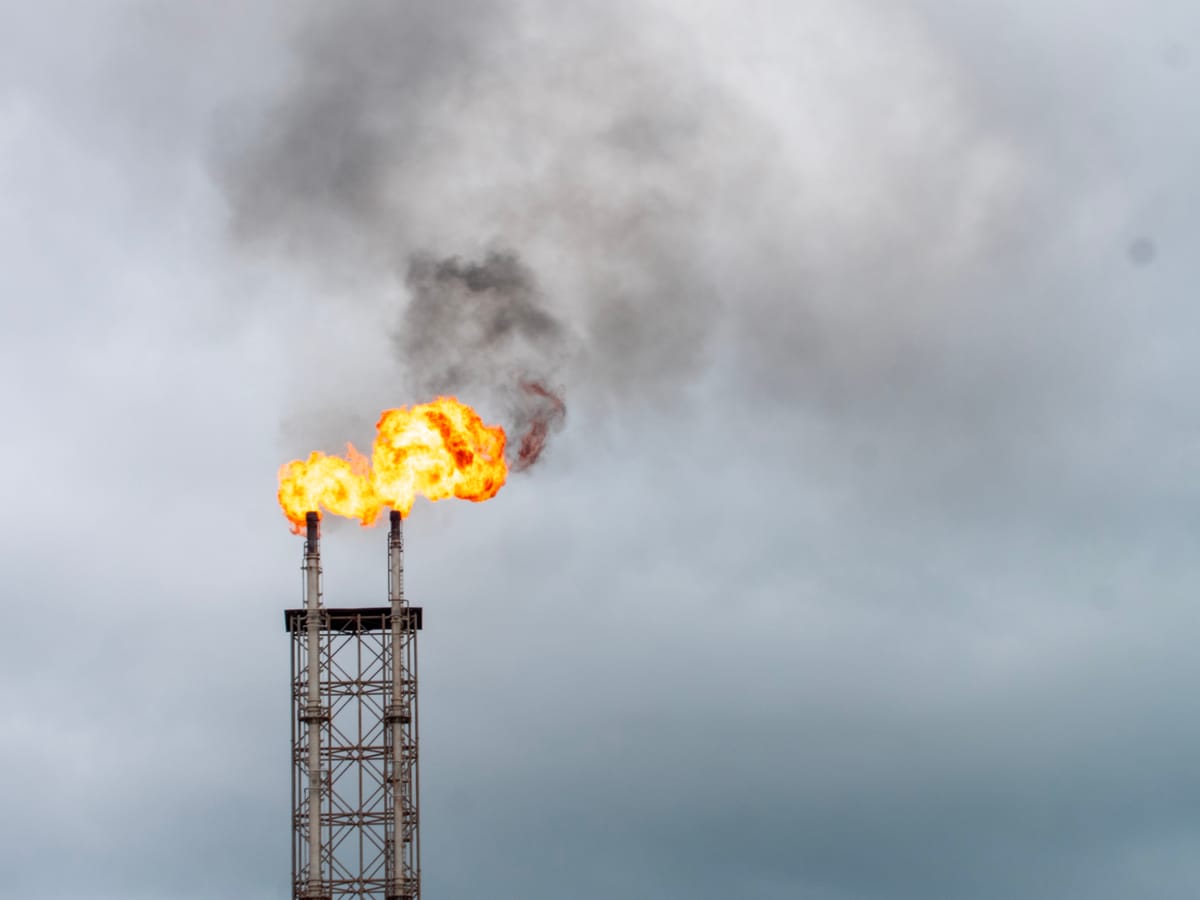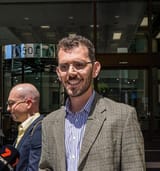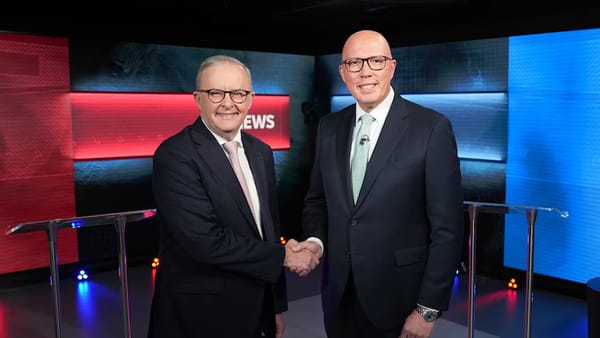Dutton admits: we’ve got a gas problem
Acceptance is the first step — but will more exports solve the issue?

Peter Dutton has called for a gas reservation policy like Western Australia’s for the east coast. I’m glad that Dutton has come clean and pointed out that Australians are getting a bad deal from the status quo – after all, 80% of our gas is sent overseas, by companies that often don’t pay royalties or taxes and are constantly fear mongering about shortages. Dutton has rightly identified that the idea of keeping more gas for ourselves is a vote winner.
But there are a few issues with Dutton’s plan.
The first is that the WA example suggests gas companies will find ways around reservation policies. Gas companies have failed to meet their reservation quotas in WA, and have pressured the state government to carve out exemptions. As wholesale energy prices suggest, we’re not doing a very good job at siloing our market from the international one.
Secondly, Dutton’s policy only applies to uncontracted gas – but many big gas projects in Australia have already secured buyers. Santos has given its support to the proposal, but, as the ABC reports, “admitted it does not have any uncontracted gas available to the east coast market”.
Meanwhile, the other half of Dutton’s plan is to fast-track approvals for new export projects including Woodside’s North West Shelf project. Not only does that open up the door to approvals being challenged legally, it also increases the pressure on the domestic gas market. Gas previously reserved for the WA domestic market is already being directed towards export, because Woodside’s reserves are running low. How then can Dutton say that the secret to cutting WA energy prices is to let Woodside export more and more?
Dutton’s reservation policy begins to look a lot like his nuclear position, in that really, it’s little more than a smokescreen for fossil fuel expansion. Missing from his proposal is any suggestion that gas companies should properly pay their way in royalties and taxes.
In my view, it's becoming increasingly clear that Dutton is too alienating and weird to win the federal election. When voters reject him in May, they’ll also be rejecting his ‘drill, baby, drill’-style energy policy.
Chaney calls out Coalition data harvesting
Before the state election, we reported on a dodgy Labor campaign website masquerading as a non-partisan resource for voters.
Well, the Coalition are already pulling similar tricks ahead of the federal election. Voters in electorates including Curtin and Forrest are receiving text messages from the Liberals encouraging them to apply for a postal vote. The link directs to a website with the URL postal.vote. It’s subtly branded as a Liberal Party/National Party site, but would be easy to mistake for a neutral source. The website collects voter info before apparently passing it on to the AEC.
Member for Curtin Kate Chaney said on the floor of parliament last that week both major parties had been pulling similar tricks with snail mail for some time.
“If you want to vote by post, go straight to the AEC,” she said. “I will not do this in my campaign. Don't be tricked into sending your data to the political parties.”
When the major parties are communicating like WhatsApp scammers, no wonder voters are getting sick of them.
Why won’t the ABC’s Pilbara bureau quote Murujuga custodians on Woodside’s North West Shelf?
Since the federal government announced it was pushing back a decision on Woodside’s North West Shelf gas extension, the ABC’s local Pilbara bureau has run two stories on the approvals saga. You’d think the ABC, as one of the few media outlets with a physical presence in the region, would be well placed to speak to traditional custodians about what they think of Woodside’s proposal to extend until 2070 gas facilities that are putting 50,000 year old Murujuga rock art at risk. But neither story included any lines from local Aboriginal people with cultural ties to Murujuga.
Other media coverage, including from The West Australian, The Australian, and the Nine newspapers, did include statements from Murujuga custodians, including Ngarluma woman Samantha Walker and Mardudhunera woman Raelene Cooper, who both advocated for careful decision-making to protect the rock art. If these outlets can include these voices and think it's important to do so, why won’t the ABC?
“Murujuga is such a special place and it is really unbelievable to me that Woodside is allowed to destroy it,” Cooper told The West. “Murujuga is my country and it holds my songlines. The rock art is sacred.”
The ABC did include lines in Saturday’s story from a (non-Aboriginal) Murujuga Aboriginal Corporation (MAC) representative. CEO Kim Wood provided a statement saying the organisation wanted the best possible science considered in any decision-making. Fair enough, but surely it's more interesting to hear from those who have an ancestral connection to Murujuga country, and have inherited the fight to protect it from generations past? Given the fraught history of MAC and more recent questions raised over MAC’s relationship to industry, it hardly seems like good reporting to rely solely on a MAC employee to represent the views of traditional custodians in a story focussed on cultural heritage issues.
Saturday’s ABC story originally said that “MAC represents five traditional owner groups that hold native titles for the [Burrup] peninsula,” before the mistake was corrected. The reality is that native title on the Burrup was extinguished so that the state government could make way for more industry. MAC was formed out of a controversial agreement with the state government that contains a ‘no-objections’ clause. MAC itself has said that clause is “offensive and outdated”. The error suggests the ABC is unaware of the true power dynamics at play. The reality is that, on the Burrup, traditional custodians have far fewer legal rights than native title would afford them. Industry — enabled by the WA government — has run roughshod over the Burrup for decades.
There are Murujuga custodians who want to be heard. You’d think part of the public broadcasters raison d'être is to elevate voices like theirs. I suspect the ABC Pilbara bureau are playing it safe because they’re concerned about political ripples their reporting could create in the tightnit local community. By doing so, they’re missing the real story. If you want detailed reporting that gets on the ground to hear what traditional custodians are saying on this issue, you generally have to look to an outfit with a bit more distance, like the ABC’s Indigenous reporting unit or international outlets like CNN and The New York Times.
The Last Place on Earth tries its hand at production
The Last Place on Earth is branching out into production. As Last Place on Earth Productions, we’re producing a daily podcast called ‘A Piece of Kate’ for Fremantle independent candidate Kate Hulett from the campaign trail. It’s the kind of disruptive new media project we think has the potential to enliven Australian politics. New episodes drop daily Monday-Friday at 7 am. You can listen on Spotify, Apple, YouTube, or wherever else you get your podcasts.





